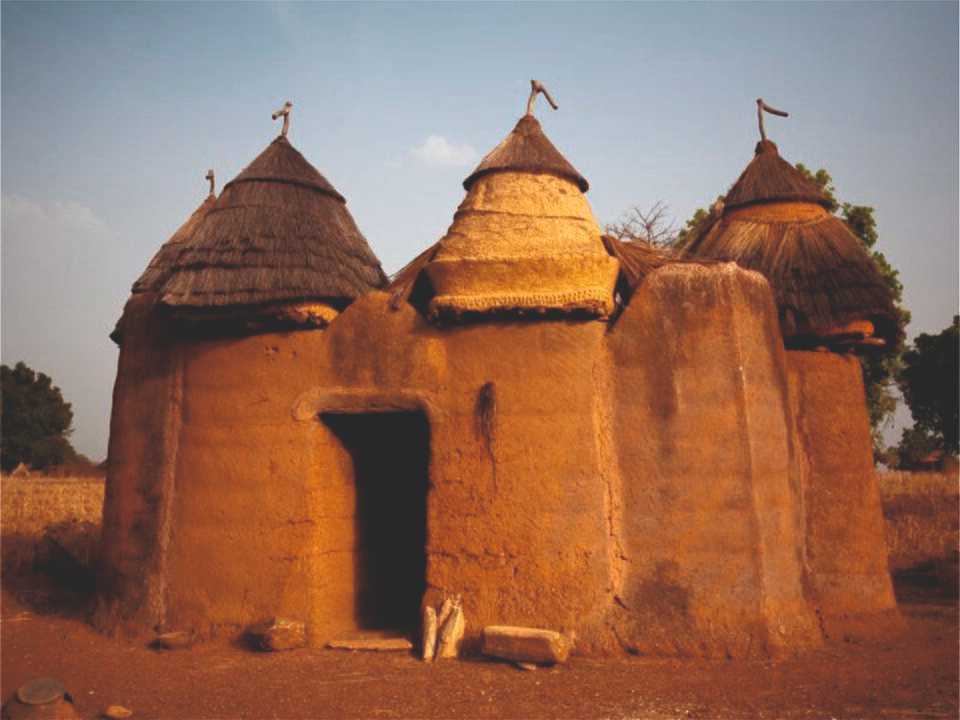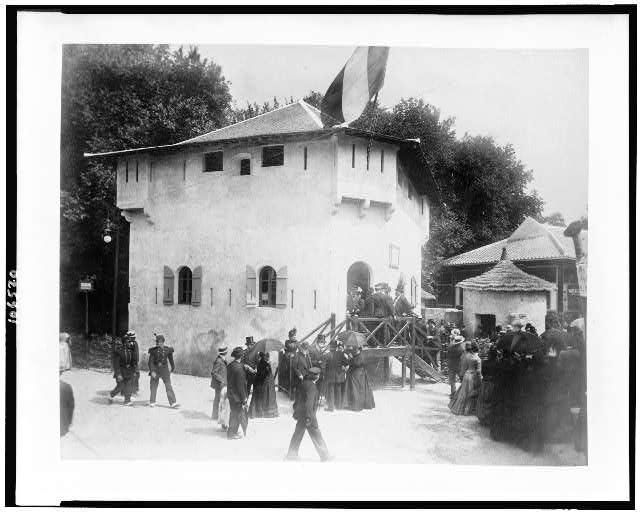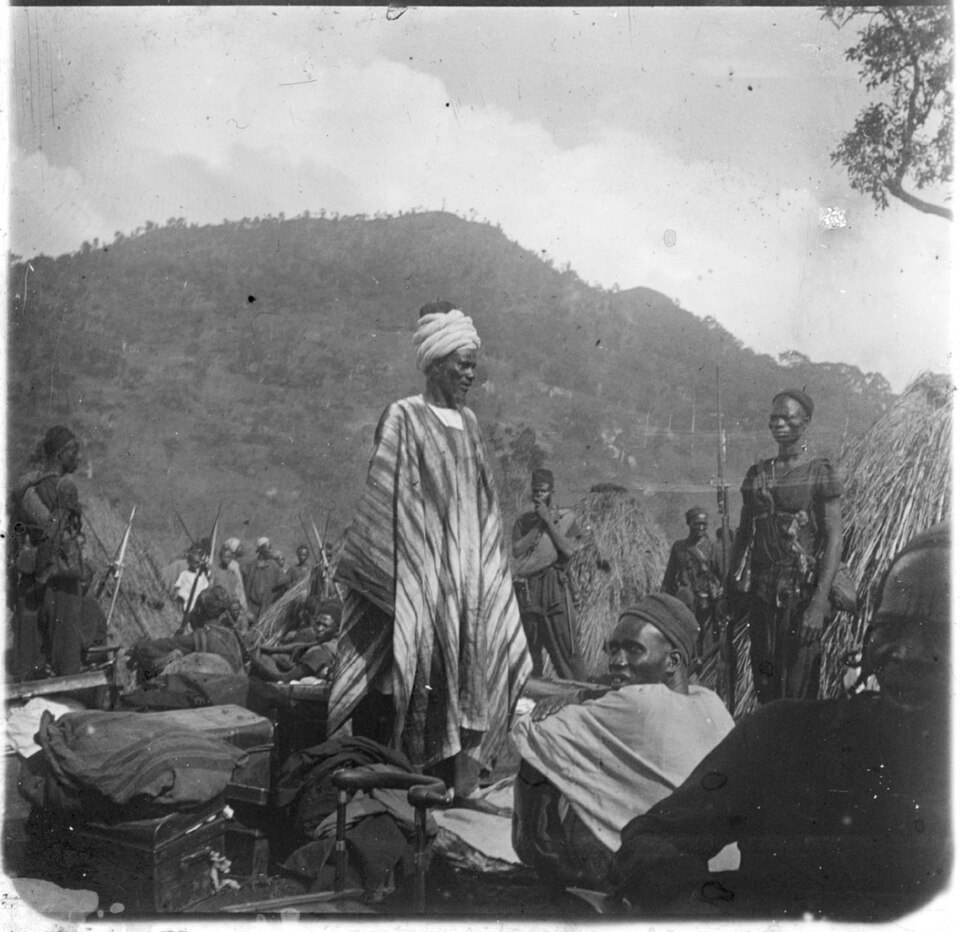IB Syllabus focus:
'Explore the reasons for both the success and failure of Mandinka resistance to French rule in the region and the dynamics that played a role.'
In the late 19th century, the Mandinka people of West Africa engaged in a fierce resistance against French colonialism. This resistance was characterised by early successes, notably under the leadership of Samori Ture, but ultimately ended in the absorption of their territories into French West Africa. The Mandinka's resistance is part of a broader spectrum of responses to European colonialism in Africa, which included both direct and indirect rule, as seen in Nigeria's experience here.
Historical Context and Prelude to Resistance
French interest in West Africa was part of a broader European race for colonies, known as the 'Scramble for Africa'. This period saw the strategic causes of partition in Africa between 1850-1900, illustrating the competitive dynamics among European powers here.
The Mandinka were part of a larger Mande-speaking group, historically known for the Mali Empire and a rich tradition of resistance against external domination. Their struggle was further contextualised by the spread of Islam and Christianity in Africa during the 19th and 20th centuries, which you can explore here.
Prior engagements with Europeans had exposed the Mandinka to firearms and new military tactics, which they adopted and adapted to their context.
Early Successes of Mandinka Resistance
Initial Strategies: Utilising their understanding of the local environment, the Mandinka engaged in effective guerilla warfare against the French forces.
Samori Ture's Leadership: His military reforms and diplomacy were pivotal in unifying various ethnic groups under the Wassoulou Empire, a state he founded, which stood against French imperialism. The colonial administration in Senegal provides a comparative example of French strategies in West Africa, which can be found here.
Adaptation and Modernisation: Ture's forces were equipped with firearms, which they managed to procure through various means, including trade and battlefield capture.
The Strategic Military Approach of Samori Ture
Reorganisation of the Army: Ture restructured his forces into a standing army with specialised units, including cavalry and infantry.
Military Innovations: He adopted European military strategies and significantly modernised his forces, which initially gave the Mandinka an edge over the French.
Intelligence Networks: Ture developed a sophisticated network of spies and informants to gather information about French troop movements and supply lines.
IB History Tutor Tip: Analyse how Samori Ture's blend of traditional warfare and adoption of European military tactics exemplifies the complexity of resistance movements against colonial powers in Africa.
Dynamics of Resistance
Fabou System: This was a 'scorched earth' policy adopted to deprive the French of local resources. The Mandinka would retreat into the interior, destroying crops and wells, making it difficult for the French to sustain their forces.
Fortified Settlements: The Mandinka constructed tata, or fortified settlements, which served as bastions against French attacks and contributed to early resistance successes.

Earthen defensive architecture known as a tata, with thick walls, towers, and narrow openings designed for surveillance and gunfire. Structures of this type were widely used across West Africa in the nineteenth century, paralleling Mandinka fortified settlements described here. This example is from the Tamberma region (Togo/Benin) and thus includes regional features beyond the Mandinka heartland. Source
Nationalism and Morale: The early victories under Ture's leadership fostered a strong sense of nationalism among the Mandinka, which was crucial in sustaining the resistance.
The French Military Response
Superior Technology: The French eventually brought in more advanced weapons, including artillery, which the Mandinka could not match.
Strategic Installations: The construction of blockhouses by the French disrupted Mandinka operations, limiting their ability to move and coordinate effectively.

A French colonial blockhouse with elevated walls and firing positions, designed to secure supply lines and interdict local movement. Such fortified posts were deployed in campaigns against West African polities, including the Mandinka resistance. This image depicts a period example exhibited in 1889, illustrating the standard features used in the field. Source
Psychological Warfare: The French also used propaganda to undermine Ture’s legitimacy and sow discord among his allies.
Factors Leading to the Erosion of Mandinka Resistance
Capture of Samori Ture: The capture and subsequent exile of Ture in 1898 was a devastating blow to the Mandinka cause.

Samori Touré after his capture on 29 September 1898, marking the collapse of the Mandinka state’s organised resistance. The image highlights the centrality of leadership in sustaining anti-colonial warfare and the strategic consequences of Touré’s removal. Period attribution: photographer Henri Gaden. Source
Resource Scarcity: Continuous warfare depleted the Mandinka’s resources, weakening their ability to sustain resistance.
Internal Disunity: Despite Ture’s efforts, there were divisions within the Mandinka ranks and among allied groups, which the French exploited.
Consequences of Resistance and French Rule
Societal Disruption: The resistance and ensuing French rule disrupted the established socio-economic order within Mandinka society. The social and economic challenges in post-independence Africa are a testament to the lasting impact of colonial rule, as discussed here.
French Administrative Changes: The French were compelled to adopt a policy of indirect rule in many areas, which, while controlling the Mandinka, also recognised some traditional authorities to keep the peace.
Cultural Impacts: Despite the eventual military defeat, the resistance entrenched a deep sense of pride and cultural identity among the Mandinka.
The Role of External Factors
Limited External Support: The Mandinka’s struggle was largely isolated due to the international recognition of French claims, a situation formalised by the Berlin Conference.
Geopolitical Dynamics: The geopolitical landscape of the time provided little opportunity for external allies to emerge in support of the Mandinka resistance.
Adaptations and Collaborations Post-Resistance
Shifts in Leadership: After Ture’s capture, some leaders sought accommodation with the French to maintain some degree of autonomy and protect their people’s welfare.
Covert Resistance: Others continued to resist through non-violent means, preserving their customs and languages and passing on the legacy of resistance.
The Long-term Impact on French Colonial Policy
Revised Colonial Tactics: The Mandinka resistance, despite its eventual failure, forced the French to reconsider their direct approach to colonial governance, leading to more nuanced and indirect methods.
Economic Reforms: The need to stabilise the region for economic exploitation led to infrastructure development, albeit primarily for the benefit of the French economy.
Educational and Historical Significance
Insight into Resistance Movements: The Mandinka resistance is a critical case study in understanding the response of African societies to European imperialism.
The Legacy of Resistance: The narrative of the Mandinka struggle against French rule contributes to a broader understanding of the legacies of colonialism in Africa.
IB Tutor Advice: Focus on understanding the strategic adaptations of the Mandinka under Samori Ture's leadership and their impact on the resistance’s initial successes and eventual downfall in essays and document analysis.
The Mandinka resistance to French imperial expansion is a complex tale of struggle, strategy, and survival. Through both military engagement and subsequent adaptations to French rule, the Mandinka left an indelible mark on the history of colonial resistance in Africa. Their story is emblematic of the broader African experience during the era of European imperialism, providing a lens through which to view the interplay of resistance and collaboration, the assertion of sovereignty, and the pursuit of self-determination.
FAQ
Geography played a crucial role in the Mandinka’s resistance. The region’s dense forests, rivers, and rugged terrain initially favoured Mandinka guerrilla tactics, allowing them to stage ambushes and retreats effectively. However, as the conflict prolonged, these geographic features also posed logistical challenges for the Mandinka. The French utilised their superior knowledge of engineering and logistics to navigate and eventually dominate the terrain. They built railroads and fortifications that cut through key Mandinka strongholds, negating the advantages the terrain initially provided to the Mandinka forces.
While there was no singular event that triggered the Mandinka resistance, the encroachment of French forces into Mandinka-controlled territories and the subsequent skirmishes escalated tensions. Samori Ture’s expansion of his own empire brought him into direct conflict with French expansionist ambitions, particularly after the Berlin Conference of 1884-1885, which gave European powers carte blanche to annex African territories. The French push into the Upper Niger region, a vital area for the Mandinka’s economic and political interests, served as a catalyst for the formalisation of resistance under Ture’s leadership.
The fall of the Mandinka Empire under Samori Ture had a demoralising effect on the wider region, signalling the formidable might of European colonial forces. It served as a stark warning to other African states of the military and technological superiority of European armies. The defeat also disrupted regional trade and political alliances, as the French sought to reorganise the socio-political landscape to fit their colonial administration. However, it also became a symbol of African resistance to colonialism, inspiring future nationalist movements across West Africa. The resistance highlighted the possibility of African unity against colonial powers, setting a precedent for anti-colonial struggles in the 20th century.
Traditional Mandinka society, organised in a clan-based system, was instrumental in shaping the form and structure of their resistance. The social cohesion and allegiance to clan leaders allowed for a unified command structure under leaders like Samori Ture. Moreover, the Mandinka had a history of organised resistance and a military culture dating back to the Mali Empire, which provided a foundation for organised military action against the French. This historical and social framework facilitated a collective response and enabled the Mandinka to mobilise quickly and on a large scale, despite the diverse and polyglot composition of their society.
The Mandinka resistance was significantly influenced by economic factors, primarily the desire to maintain control over their prosperous trading networks and resources. The region was economically vibrant, with trade in gold, ivory, and agricultural products. French colonial aims threatened these economic foundations by seeking to redirect wealth and resources towards France, undermining local economic autonomy. Mandinka leaders, like Samori Ture, recognised the threat to their economic prosperity and political sovereignty, which galvanised resistance efforts. The French imposition of taxes and the disruption of trade routes further exacerbated tensions, contributing to the outbreak and persistence of resistance.
Practice Questions
Samori Ture was pivotal to the Mandinka resistance, emerging as a strategic and charismatic leader who galvanised and united various ethnic groups against French imperialism. He reformed the military structure of the Mandinka, incorporating European tactics and organising his forces into specialised units. His adoption of modern firearms and intelligence networks significantly bolstered the Mandinka's defensive capabilities. Furthermore, Ture’s diplomacy delayed French advances and created a semblance of unity amongst local populations, enabling the initial successes of the resistance. Despite eventual defeat, Ture’s leadership left a lasting legacy of resistance within West African historical consciousness.
French countermeasures had a profound impact on the Mandinka resistance. The French deployed advanced weaponry and constructed strategic blockhouses, undermining the mobility and supply lines of the Mandinka. These blockhouses acted as fortifications which hindered Mandinka guerrilla tactics. Moreover, French psychological operations weakened Samori Ture's authority and exposed fissures within Mandinka ranks. The capture of Ture in 1898 dealt a critical blow to the Mandinka's morale and organisational structure. As resources dwindled and internal divisions were exploited, the Mandinka's ability to resist was severely compromised, leading to the eventual incorporation of their territory into French West Africa.

